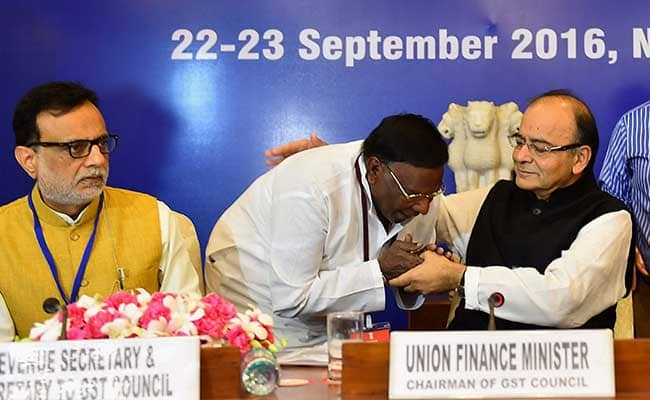The Modi government has taken another step to revive the Micro, Small and Medium Enterprises (MSME). The GST council has eased the compliance burden for the MSMEs in its 32nd meeting. The council almost doubled the tax exemption limit to 40 lakh rupees from the existing 20 lakh rupees. The turnover limit for availing composition scheme which allows the business to pay tax at flat rate was raised to 1.5 crore from 1 crore.
Few experts are of a view that exemption may lead to the erosion of the tax base but the data suggests something exactly against this notion. “Even with the current threshold limit, there are 10.93 lakh taxpayers with turnover below 20 lakh rupees, who are paying GST,” said finance minister Arun Jaitley. He also expected that many businesses would like to be part of GST chain because it comes with various benefits. “Some out of them may still want to be part of the GST chain. Some may require it for banking purposes. Some may actually opt-in for composition scheme,” he said.
The governments of Congress-ruled states and Delhi were apprehensive about the decision of the central government and feared erosion of tax base and opposed the relief for MSMEs. “Threshold limit increased from 20 to 40 Lakh in #gst. Kerala & Chattisgarh insisted on 20 lakh. So states given option either remain in 20 or 40 lakh. 50 lakh turnover & 6% tax rate for service providers in a new composition scheme in #gst. Again Chattisgarh & Congress-ruled states wanted 8% GST. Outside Congress say lower tax rates & in meeting fight for higher tax rates,” tweeted finance of Bihar Sushil Modi.
Modi government gave New Year’s gift to middle-class consumers in the 31stmeeting of GST council held in December, 2018 as the total number of items in the highest tax bracket was reduced from 34 to 28. Monitors and Television screens, Tyres, Power banks of Lithium-ion batteries have been brought to 18 percent tax slab from the earlier 28 percent slab. Movie tickets above hundred rupees were also put in 18 percent slab from 28 and tickets below 100 were put in 12 percent from 18 percent slab. Last year, the government announced many steps to support MSME sector including faster approval of licenses, easier and cheaper credit. The MSMEs registered under GST will get 2 percent interest subsidy on new loans. The government also launched a website named psbloansin59minutes.com to provide easier and time bound access to loans for MSMEs. “Yeh naya Bharat hai, isme bankon ke baar baar chakkar lagana khatam (This is New India, here you don’t need to go to banks again and again for loans),” said Modi while addressing MSME players from across the country.
The MSME sector was struggling for loans since the crackdown on public sector banks started during the Raghuram Rajan era. In the light of rising NPAs, RBI implemented strict norms for loans and credit to MSMEs almost halted. Big companies have multiple sources of capital like foreign direct investment, foreign portfolio investors (FPIs), foreign institutional investors (FIIs), debentures and equities. But on the other hand, companies in the MSME sector are largely dependent on loans from banks for their capital requirements. The hawkish policy for NPAs cleanup made loans scarce and this led to a slowdown in the economy, especially in the MSME sector.
With the change at the helm of administrative affairs with a relatively liberal governor, RBI allowed the restructuring of loans to the MSME sector. “RBI has decided to permit a one-time restructuring of existing loans to MSMEs that are in default but ‘standard’ as on January 1, 2019, without an asset classification downgrade,” said RBI in a statement. The initiatives taken by the government to increase the tax cap to 40 lakh and RBI’s initiative to cut the red tape and to provide easy access to credit will definitely help the MSME sector, which happens to be the second largest job creator after agriculture.
